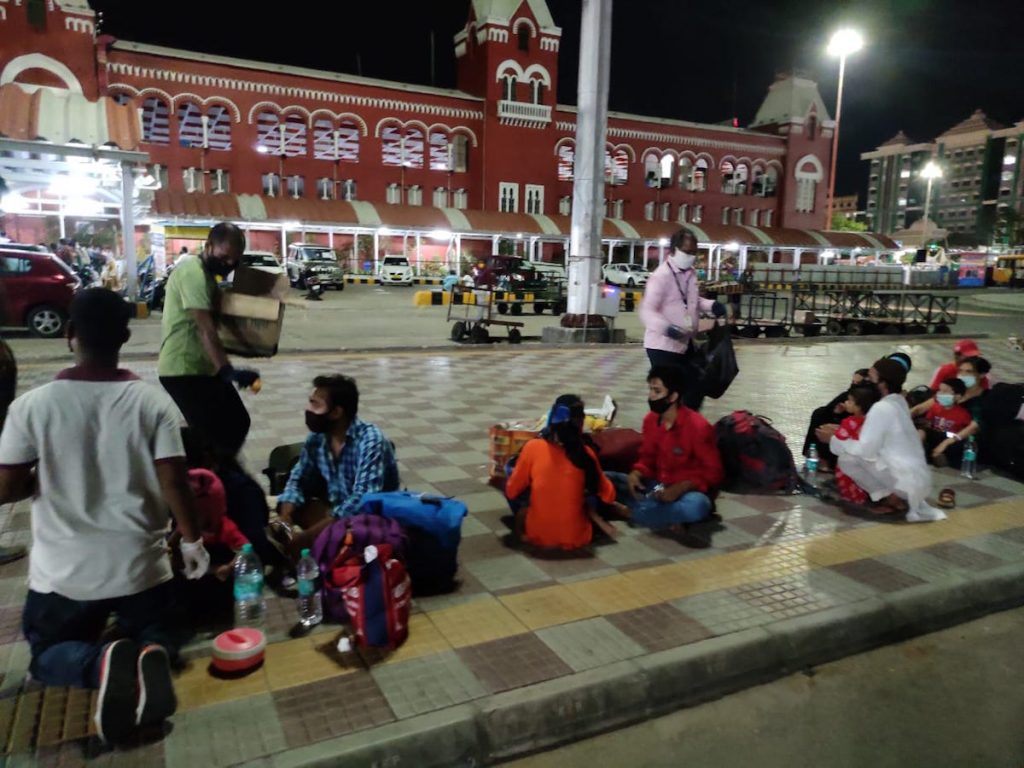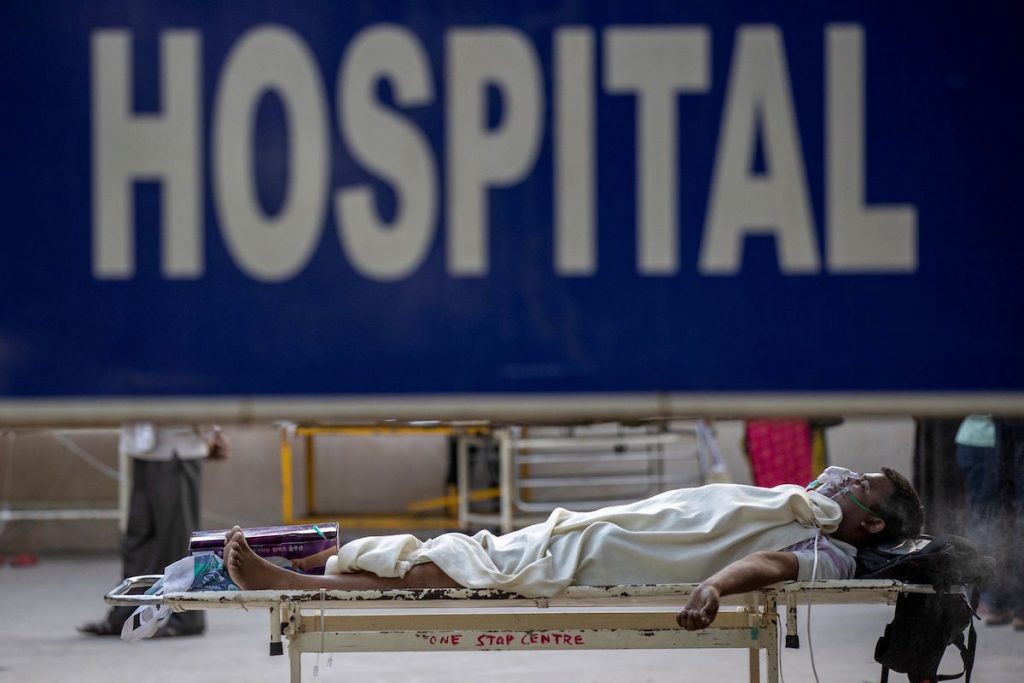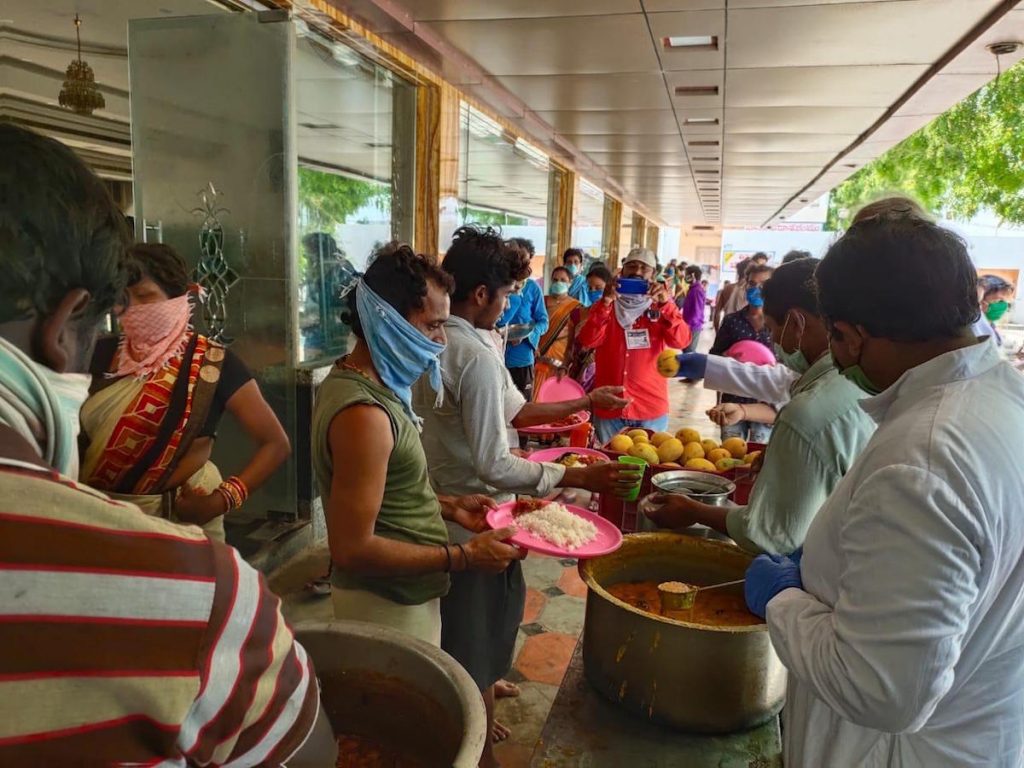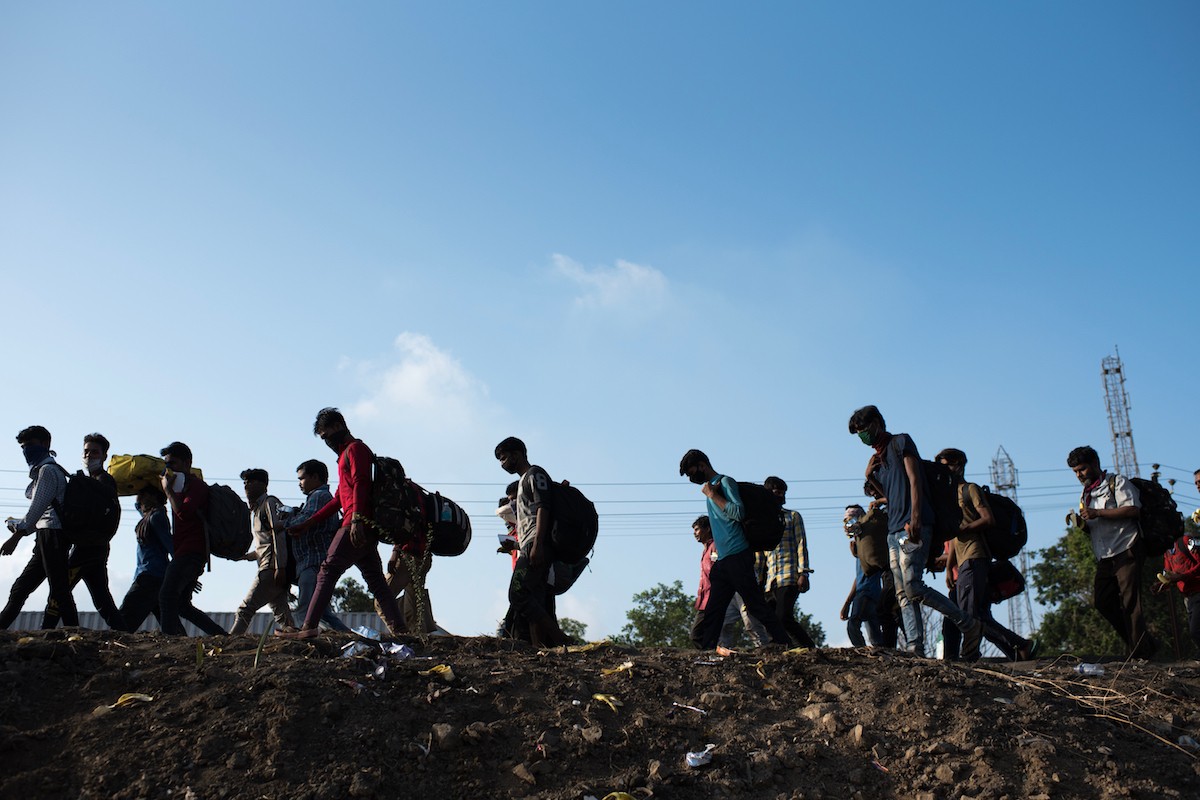March of last year was a trying time for 34-year-old Jaswant Kumar, a migrant laborer from India’s northern state of Bihar. He was working in the Indian capital New Delhi when a sudden nationwide lockdown threw his life — and that of millions like him — into turmoil.
Kumar and several of his co-workers were in their accommodation when they were informed on March 24 that they had to leave without delay and go home due to the strict anti-COVID measures.
The next morning, he found himself among a multitude of migrant workers and their families trekking along roads to get back to their rural villages.
“I saw scores of the workers dying on the roadsides due to dehydration and sunstrokes. I saw children starving. There was no one out there to help us. We were all heading back home, angry and dejected,” Kumar said.
An estimated 971 migrant workers died during the lockdown when they were returning to their homes last year.
More than a year has passed, and Kumar hasn’t returned to New Delhi. Father of three children, he has been doing menial work in his village to earn money.
He’s horrified of the thought of undergoing last year’s trauma again and won’t be returning to the city anytime soon for work.
“What if the government imposes another strict lockdown. Where would we go then? It is better to skip a meal, earn little here in our hometown than to go back to the city again,” Kumar said.

According to the Centre for Monitoring Indian Economy, during the first phase of the lockdown in India, an estimated 122 million people became unemployed, 75 percent of whom were daily wage earners.
Mangesh Yadav, another migrant worker, comes from the state of Haryana. He now works as an ironsmith in a factory in Delhi and given the current large surge of COVID infections in India he’s afraid of once again losing his job.
When last year’s lockdown was imposed, Yadav didn’t leave his rented room for three days and when his essentials exhausted, he found no option but to go back to his village. However, the journey was traumatic. It took him three days to reach his village and for days after he had nothing to eat.
“Till November last year, I was sitting idle at home. Now, with much difficulty I have got this job. I do not want to lose it any cost,” Yadav said.
But the second wave of COVID-19 currently hitting India is more infectious than last year. On April 24, COVID cases for that day were 332,730; a daily world-record high since the pandemic began. The majority of the hospitals in New Delhi are packed to capacity and there’s a severe lack of oxygen being.

Amid the rise in numbers, the country may return to another strict lockdown but that’s an unwelcome prospect for people like Kumar and Yadav.
“I haven’t gone to the city for work. I prefer to earn little in my village but if there is a lockdown, I would lose whatever little chance of livelihood I have at present. This looks catastrophic,” Kumar said.
To help minimize the sufferings of migrant workers, various efforts have been made by Catholic Church groups, such as the “Pravasi Bandhu” program that aims to assist, support and protect internal migrant workers in various Indian states.
Caritas India executive director Father Paul Moonjely said the program’s services will be provided through the help desk at the source states and at migrant resource centers at the destination.
“There is a dire need for the humanitarian approach to the migrant crises emerging in the country due COVID-19 outbreak and its second wave,” Father Paul said.

But the program goes being a response to COVID.
“We need to enable a more dignified standard of living, creating better avenues to address the issues of migrants workers,” he said.
The program aims to safeguard the interests of the migrant labor force, he said.
He said the program services include providing linkages to government entitlements and schemes, legal assistance, assisting with employment opportunities and banking services.
Caritas India official Deepak George added that the program, launched this month, is looking to create safe corridors for migrant workers and helping them make informed choices.
“Another program objective is the social and cultural integration of migrant workers in their destination communities,” George said.







